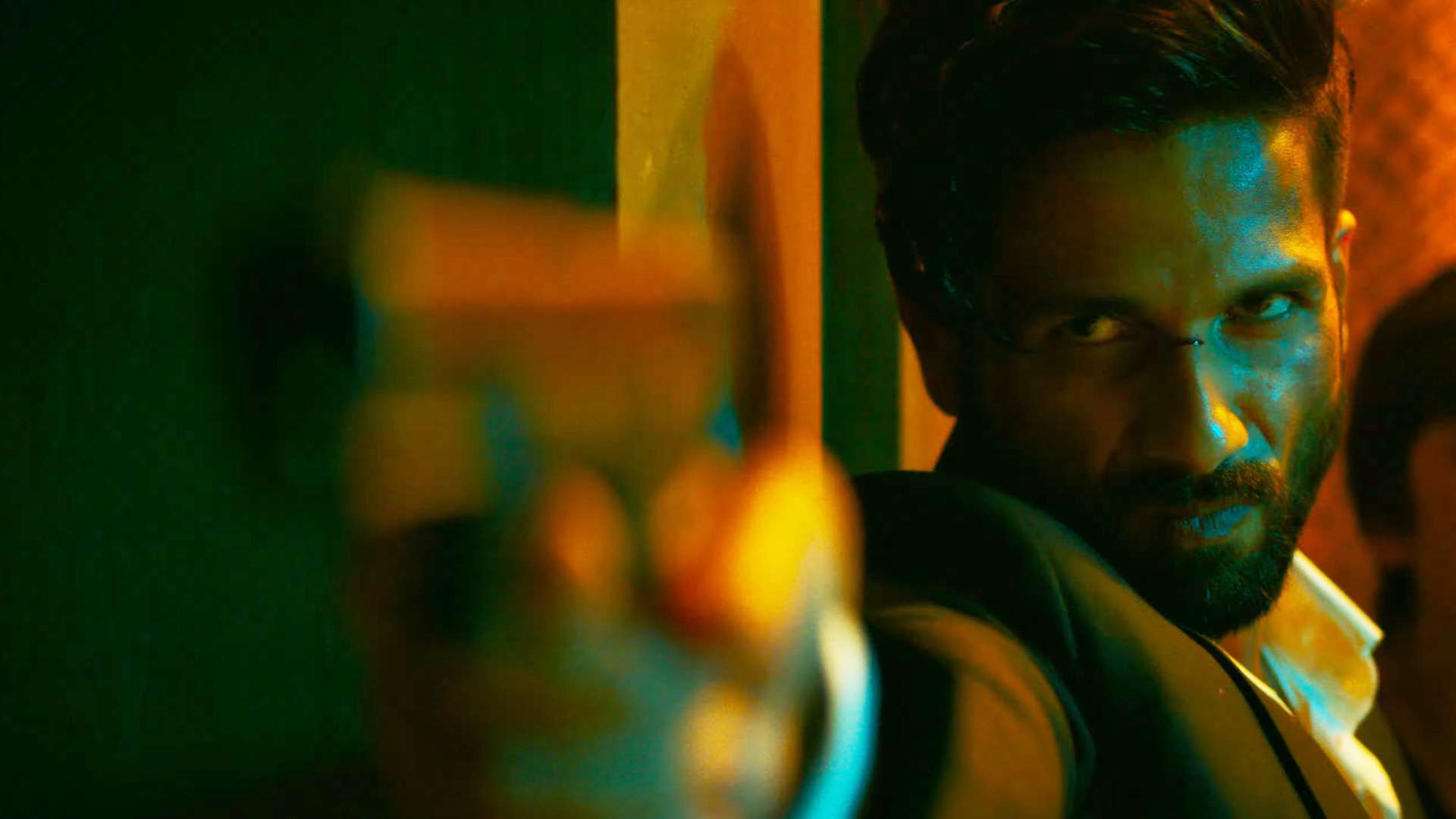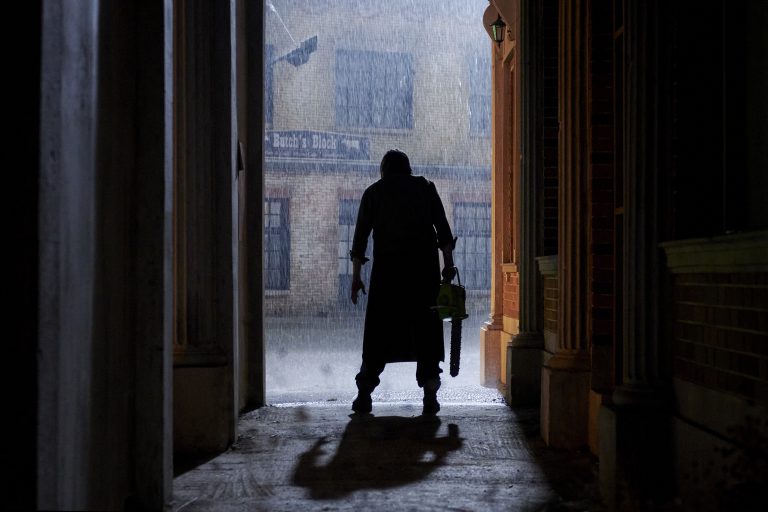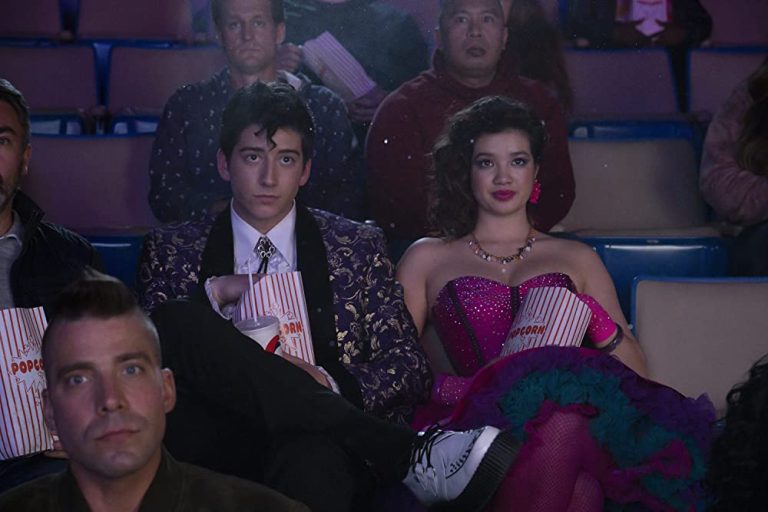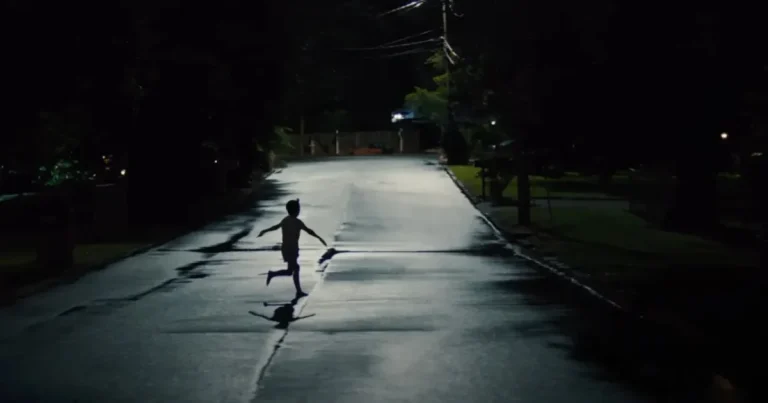When a film begins by invoking the pandemic and the resultant ordeal of the people, it is only expected of it to build up from its stepping stone and present a story that has its heart right there. However, Bloody Daddy does none of that. Instead, we get stuck in the midst of a lavish Gurugram hotel with the ensuing pandemic making itself known through forced exchanges in an elite wedding populated by anti-maskers.
The eighth directorial venture of Ali Abbas Zafar, Bloody Daddy (2023), is the remake of the French film ‘Sleepless Night’ (2011) by Frédéric Jardin. The story takes place at a single location over the course of one night and follows Sumair (Shahid Kapoor), an NCB cop, who has tried to snatch a cocaine deal but has instead disturbed the snake in the grass, Sikander (Ronit Roy), the owner of the hotel and a drug kingpin.
Sikander retaliates by abducting Sumair’s son. With a classic “mera samaan le aa, aur apna leja” trope arising, Sumair has to give up the duffel bag of cocaine in order to get back his son. He arrives at Sikander’s den, his hotel, and hides the duffel bag inside the vents of the washroom. However, Sumair is ambushed by two other narcotics officers – Sameer (Rajeev Khandelwal) and Aditi (Diana Penty), who would give what it takes to prove that Sumair is unclean. They displace the bag from its initial position, and from here, the film picks up.
Apart from the ensuing cat-and-mouse game following the bag’s disappearance, there is not much to the plot. It can just be boiled down to one line– the bloody path the father takes to find his son. Although the title stresses on the father-son aspect of the story, the story which forms the center is not allowed to develop and spread its wings much.

The cinematography of the fights is interesting in places, but they remain subservient. The fight choreography in the game zone with neon lights covering and uncovering the figure of the hero would instantly call to mind the neon club scene in John Wick (2014). But that is just about it.
Bloody Daddy is easily forgettable. From voice notes to face-to-face dialogues, every piece of utterance feels forced, ham-fisted, and insincere. There is nothing remarkable about them.
Shahid Kapoor becomes a victim of poor writing that has one cringing with every step, with every delivery. Apart from Kapoor, the character to which the most injustice has been meted out is that of the client of Sikander, Sanjay Kapoor. He is the campy villain who endeavors to establishing himself as a powerful dealer, making his presence comical. His occasional jibes feel underutilized, which engenders a feeling of ‘what could have been.’ Diana Penty is referred to as the ‘Lady Singham’ when she is introduced, but it turns out her character is painfully just about everything but that.
However, I can pinpoint two moments in Bloody Daddy that helped me sit up and take notes. The first is when a chef interrupts Sumair when he is interrogating the chef from Nepal. Sumair checks the former’s name tag, and just when one would expect a curt, inventive delivery here, he just pushes him aside and screams, “Jaa jake dal bana, chal Rudraksh”. This was noteworthy because it simply did not make any sense. What was the purpose of doing this? Why would anybody write this line? Guess this secret will sink into oblivion!
The second is the banquet table scene at the wedding, where Sumair gets up and indulges in two minutes of bloodless, silent violence by vandalizing the decorations. He does so as a display, a display for the hotel owner, Sikander. For a film that has forced itself too much until this point (and going to do so for the rest of the runtime), it is instances like these that really make it stand out. The scene exemplifies simple, mindless violence, but it has to be the most chaotic one in the entire film. It is also perhaps the only funny sequence in the entire film, made funnier by how Sikandar reacts on hearing Badshah’s arrival at the party. He is imploding inside, but he does not scream, rather becomes a mesh of shakiness and relief. I do not know if this was intended, but the unexpectedness of it made the ordeal worth it.
There are a lot of questions that remain unanswered in the film and, needless to say, unclear. By unclearness, I don’t mean the open-ended conclusion of a great piece of cinema but an example of unclearness that arises from starting something and hurriedly leaving it midway.
In conclusion, I would pass over this film apart from that one scene that had me in splits.







![Polytechnique [2009]: A Ponderous Glimpse into the Layers of Misogyny](https://79468c92.delivery.rocketcdn.me/wp-content/uploads/2016/03/Polytechnique-film-images-a77103a9-e80f-4b1b-9733-442e828f3f9-768x432.jpg)